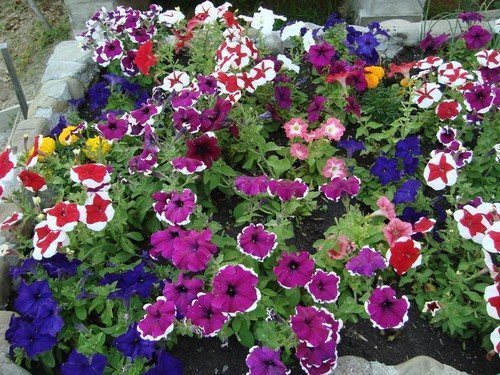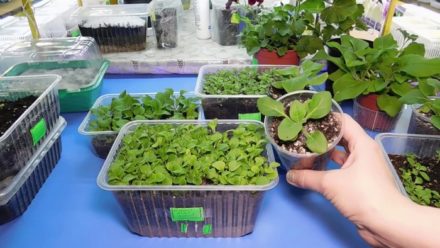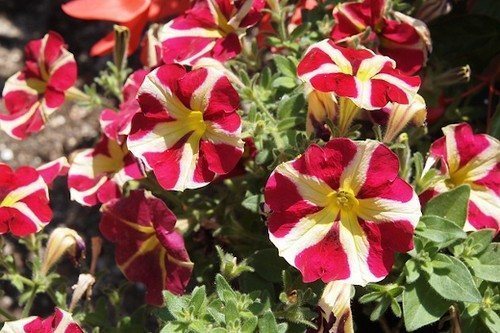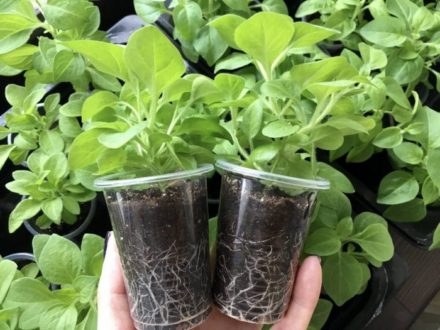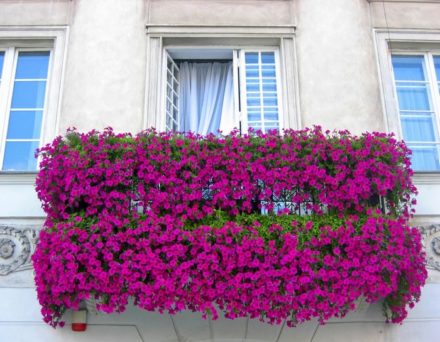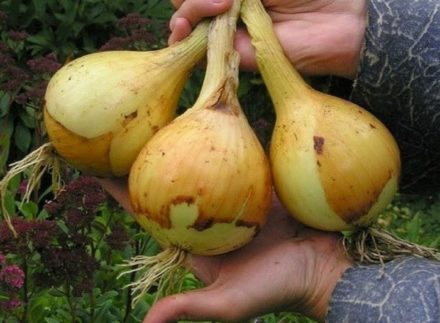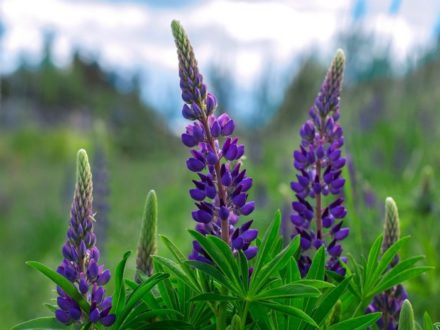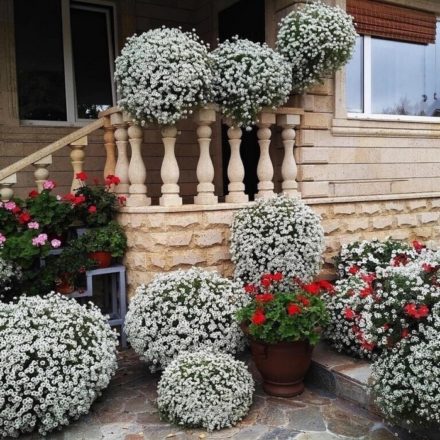Petunias are beautiful annuals that decorate balconies and flower beds. There are many varieties of the crop, which allows you to create multi-colored compositions pleasing to the eye. But when growing seedlings, sometimes unpleasant incidents occur that lead to disease and even death of the plant. One of these situations is stopping the growth of seedlings.
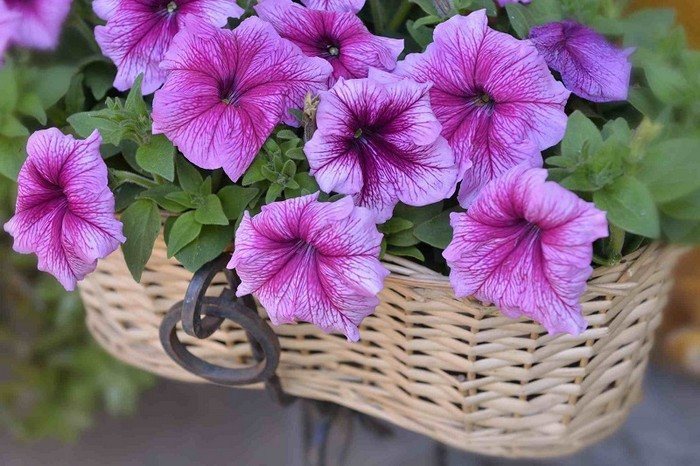
Causes of stunted growth and ways to solve the problem
There are often cases when seedlings actively begin to grow, but at some stage growth slows down or stops altogether. According to experienced flower growers, there is an explanation for this. And by establishing the causes of this problem, the situation can be corrected and the process of normal growth can be restored.
Priming
One of the main culprits for stunted growth is a poor substrate. When choosing soil, choose neutral when the pH is 6.4–7.3 or slightly acidic when the pH is 5.4–6.3. And besides this, fertile and loose soil is selected.
If the seedlings have stopped growing, inspect the soil. And after making sure that the reason is in the substrate, they replace it. You can buy universal soil in a store or prepare the soil yourself. Impeccable composition: turf soil, high-quality peat, vermicompost, raising agents.
Capacity
If petunia seeds are sown in a small container or too crowded, then there is not enough space for the sprouts or the soil nutrients are used up.
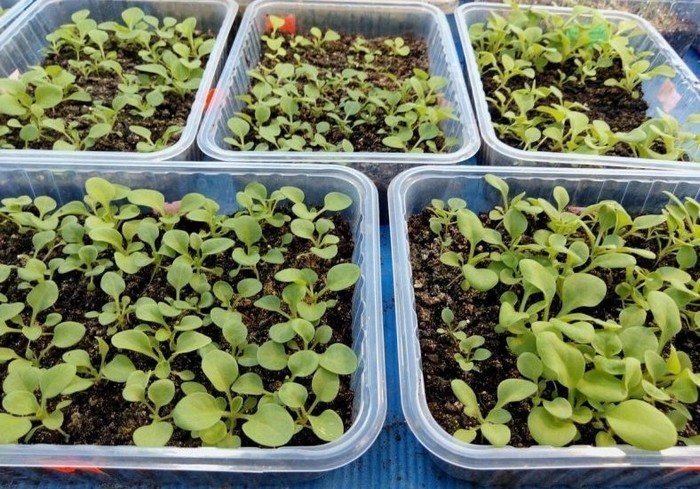
The solution is found in thinning or picking petunias.The sprouts are transferred into larger containers, but preferably into separate cups or pots. True, the seedlings will not immediately grow. Adaptation to new conditions will take 7–10 days. But then the growth of roots and above-ground parts will resume.
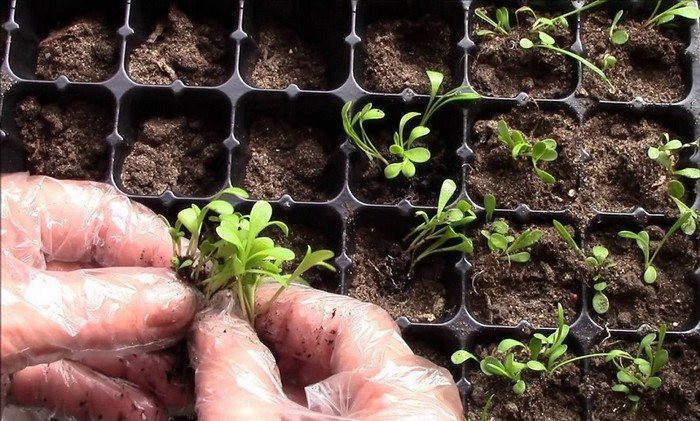
But if, after picking, the growth of seedlings does not accelerate, then they are fed with complex fertilizers containing boron. Or, instead of fertilizers, spray with a solution of boric acid at the rate of 0.7 g of substance per 1 liter of water.
Care
The growth of petunia seedlings also stops if the rules of lighting, temperature, watering and fertilizing are not followed.
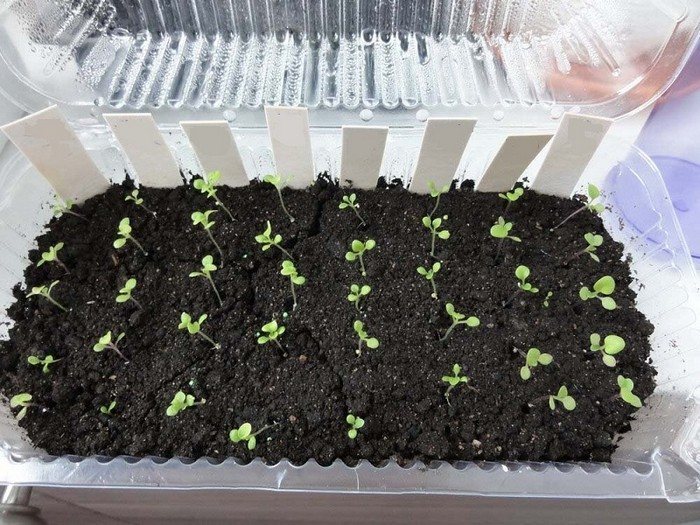
Necessary conditions and care:
- Temperature. Immediately after sowing - 25 °C, after sprouts appear - 18–20 °C during the day, 16–18 °C at night.
- Lighting. Full lighting – 12–14 hours a day. When there is a lack of natural light, phytolamps are used.
- Watering. Regular but limited. Excessive watering causes mold, mildew, and root rot. Water when the top layer of soil dries out. Water temperature is room temperature.
If growth has stopped after picking, the plant is sprayed with a growth stimulator. For these purposes, Zircon or Epin are used. The remaining product after the procedure is watered over the plants.
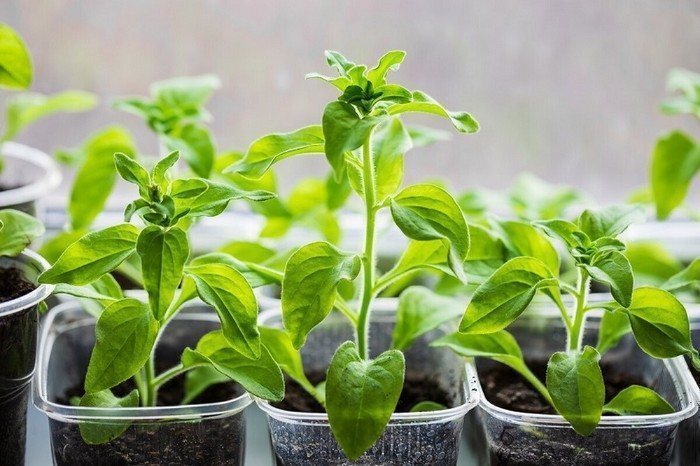
Nutrition
To ensure proper development and prevent growth arrest, petunia seedlings are fed twice. The first feeding is carried out a week and a half after germination, the second – a week after diving. Complex fertilizer for seedlings is used. If feeding is not carried out, and the seedlings are in the same soil for a long time, then it is not surprising that growth stops.
To restore growth, buy dry (or liquid) fertilizer with an increased content of nitrogen for the development of the above-ground part of the seedlings and phosphorus for the development of roots. The fertilizer should contain potassium, which is needed in small quantities at this stage of development. It is desirable that the fertilizer contains boron, magnesium, zinc, iron and other elements. By watering the seedlings with a composition whose concentration is twice less than according to the instructions, the result will not be long in coming.
Additional treatment
If the proposed methods have been tested, the soil has been replaced, fertilizing is carried out, the temperature and light conditions are maintained, and the seedlings practically do not grow, the sprouts are stimulated using B vitamins.
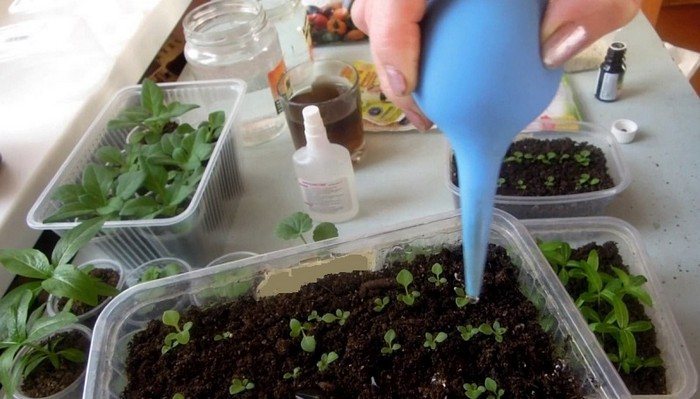
Method 1
Ampoule B1 (B12) is dissolved in a glass of water. The solution is taken into a pipette or syringe and applied 1-2 drops to young seedlings. Adult sprouts are sprayed with a spray bottle. The procedure is carried out weekly, and vitamins B1 and B12 alternate.
Method 2
One ampoule of B1, B6, B12 is dissolved in 1 liter of water. Seedlings are sprayed with this composition once every 10 days.
It is no coincidence that people call stimulating formulations based on B vitamins “secret weapons.” After such treatment, even the weakest sprout comes to life. The drugs are purchased at the pharmacy.
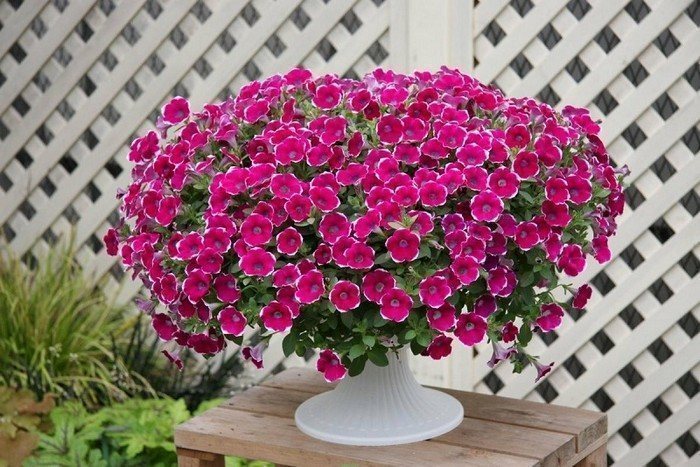
So, if the reasons for the growth arrest are found, you can get rid of the problem. But this will require a lot of effort. In the future, you need to take into account the mistakes made and use the recommendations. And then, without any problems, it will be possible to cultivate high-quality seedlings, which in the future will delight you with the magnificent flowering of bright and beautiful petunia.


